Empowering Young Researchers
Seed Grants are integral to the UCLA Health Jonsson Comprehensive Cancer Center's ongoing mission of accelerating research to prevent and cure cancer. They enable new investigators from all areas of cancer research to explore innovative ideas and established researchers to leverage previous discoveries, with the goal of advancing basic, translational, clinical and population science.
These grants provide that key initial funding, allowing our physician-scientists to pursue new ideas, which might not otherwise be possible and enabling them to generate the preliminary data required to obtain sustainable funding from the Federal government or foundations, which may then lead to the development of FDA-approved treatments for widespread use or better understanding of how to treat and survive cancer.
The Ali Jassim Family Cancer Research Program is funding Seed Grants for the following UCLA researchers.
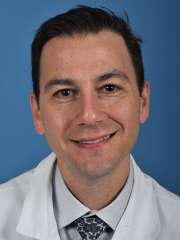
Vachte Agopian, MD
Isolation and Characterization of Extracellular Vesicles as a Biomarker in Hepatocellular Carcinoma (May 2019)
The study aims to develop a new technology to aid the detection of liver cancer. The technology involves capturing vesicles released from liver cancer cells from patient plasma, and measuring molecules inside the vesicles that can inform us about the stage of the cancer.

Keriann Backus, PhD
Covalent Proteogenomics to Functionally Annotate Acquired Cysteines in Cancer (Oct 2019)
Cysteines are an amino acid which are involved in pathways that feed cancer cells and provide building blocks for cancer cell growth. This study seeks to identify the exact cysteines that are a part of cancer and how they can be targeted for treatments.

Paul Boutros, PhD, MBA and Team
Collaborative research project on localized prostate cancer (May 2020)
The study aims to learn how we can find dangerous prostate cancers before they become lethal, and treat them early. The goal is to figure out which patients are currently being over-treated and which are being under-treated, so we can simultaneously increase our ability to cure prostate cancer, and avoid giving men unnecessary and painful treatments.

Manish Butte, MD, PhD
Enhancing T-cell responses to solid tumors with bioengineered 3D scaffolds (Oct 2020)
The study will examine a new way to deliver immunotherapy directly into solid tumors. The goal is to develop a better method for immunotherapy drug delivery since systemic exposure is often associated with significant negative side effects.

Vivian Chang, MD
Aging in Bloom Syndrome (Oct 2020)
The study will examine what happens to the genome (all of the DNA within an individual’s cells) in patients with a rare disorder called Bloom Syndrome who age prematurely and many of whom develop cancer at a young age.

Yvonne Chen, PhD and Team
Immuno-metabolism to improve CAR-T cell therapy (May 2020)
The study is an interdisciplinary effort to generate safe and effective chimeric antigen receptor (CAR)-T cell therapy for cancer that will be done by doing a deep-dive into understanding the relationship between the metabolism and anti-tumor functions of CAR-T cells.

Heather Christofk PhD and Team
Advancing Dietary Therapies to Treat Cancer (May 2020)
The study will investigate how best to use specialized diets in combination with standard-of-care cancer therapies to make the therapies work better in patients.

Maria Begona Diaz Fernandez
Mitochondria as a key determinant of the sensitivity of highly metabolic lung carcinoma to N-myristoyltransferase (NMT) inhibition (Jan 2022)
Finding novel therapeutic strategies for therapy-resistant lung carcinoma is an urgent unmet clinical need. This study proposes to investigate why highly metabolic cells are sensitive to NMT inhibition, critical information to inform future preclinical studies using NMT inhibitors in lung cancer. This investigation is timely because NMT inhibitors have recently entered clinical trial for lymphoma, and significant because of its potential to uncover a novel treatment for therapy resistant lung carcinomas.
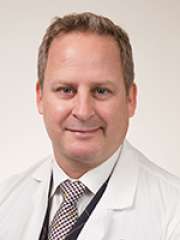
Erik Dutson, MD
Smart Haptic Feedback for Tissue Characterization during Robotic Excision of Soft Tissue Tumors (Sep 2021)
This project will develop and integrate novel opto-mechanical force sensor microarrays into robotic end-effectors to enable real-time smart haptic feedback in which tissue mechanical properties are used to characterize tissue type during robotic surgery. It is anticipated that this technology will provide substantial assistance during tumor localization in robotic oncologic surgery and ultimately lead to improved surgical margins and a reduction in complications and operative time.

Edward Garon, MD, MS
Evaluating Association Between Need for Translated Consents and Type of Clinical Trial for which Patients Consent and Enroll (May 2020)
Insufficient language translation services deter non-English speaking patients from enrolling in cancer trials. This study will determine whether the source of translation funding impacts the percentage of non-English speaking patients from participating in cancer trials.

Julia Heck, PhD
Role of the placenta in pediatric cancer (Oct 2018)
The study aims to generate preliminary data for grant proposals on pediatric cancers which will explore the role of the placenta and early biomarkers for cancer. The goal of this study was to examine factors in the prenatal environment which may contribute to cancer risk. The team is taking a multi-prong approach to understanding how placenta dysfunction may contribute to cancer risk, by looking at multiple markers of early placenta dysfunction.
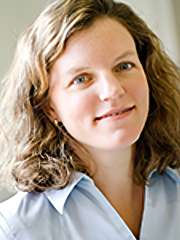
Heather Himburg, PhD
Therapeutic Anti-Pleiotrophin Treatment for Eradication of Chemotherapy-Resistant Acute Myeloid Leukemia (May 2019)
The study will assess a new therapy for chemotherapy-resistant leukemia. It aims to determine whether treatment with this antibody is capable of killing patient leukemia cells alone or in combination with chemotherapy. The new therapy is an antibody towards a protein that promotes leukemia cell survival.
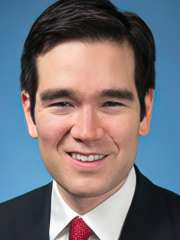
Jonathan Jacobs, MD, PhD
The intestinal microbiome in locally advanced colorectal adenocarcinoma: associate with T cell infiltration into tumor and effects of surgery/chemotherapy (May 2019)
The study analyzed the gut bacteria, immune system, and diet of colon cancer patients at UCLA followed from before their surgery until after completion of chemotherapy. Investigators are now using this data to determine which gut bacteria are associated with robust anti-cancer immune responses and whether these bacteria are negatively affected by surgery/chemotherapy. The next step is to develop dietary and probiotic interventions after surgery and during chemotherapy that reduce colon cancer recurrence.

Leanne Jones, PhD
The role of L1CAm in the human intestine and intestinal disease (Oct 2019)
The study will examine a role for a newly identified upregulated protein (which has more receptors and thus greater sensitivity) in colorectal cancer in promoting growth and the division of intestinal stem cells and tumor formation.
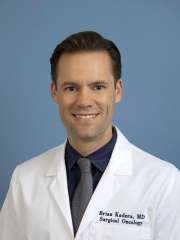
Brian Kadera, MD
Elucidation of metabolic dependencies in liposarcoma to predict response to novel targeted therapy (May 2020)
The study focuses on a highly lethal cancer called liposarcoma for which treatment options are limited. The goal is to determine whether metabolic differences in these fat-derived cancers can be used as targets for treatment.
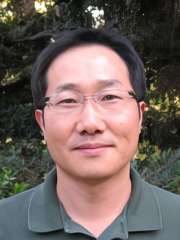
Yong Kim, PhD
AI deep learning discovery of clinical physiognomies of salivary cfDNAs associated with gastric cancer (Oct 2019)
The study will develop a screening test for gastric cancer using a patient’s saliva. Currently no screening tests exist for this type of cancer.

Amar Kishan, MD
Genomics signatures in gleason score 9-10 prostate cancer (Oct 2018)
The study identified significant genetic heterogeneity in the most aggressive type of localized prostate cancer, which is termed Gleason score 9-10 disease. This heterogeneity is linked to differences in outcome, implying that some cancers might benefit from a more aggressive treatment strategy, whereas others may need a less aggressive treatment strategy. This study led to better characterizing this clinical heterogeneity in large, multi-institutional datasets, as well as explored the options for treating disease that recurs specifically after radiation therapy.

Albert Lai, MD
Investigation of N6-Methyladenosine (m6A) RNA methylation in IDHmutant glioma (Jan 2019)
Gliomas presently remain incurable despite current treatment modalities. This study directly addresses the need to find effective therapies for gliomas by characterizing aberrant N6-Methyladenosine (m6A) RNA modification in glioma and exploring whether this pathway represents a potential novel therapeutic target.
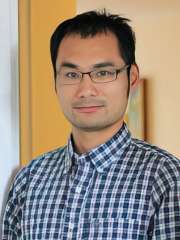
Neil Lin, PhD
Studying the Effects of Flow on Patient-derived Cancer Tissues in a Scalable Culture Platform (Sep 2021)
The study is focused on developing improved technology for culturing and studying patient-derived chunks of tumor called tumor explants. This is important since it could enable investigation of how drugs impact tumor explants, thereby potentially improving cancer treatments.
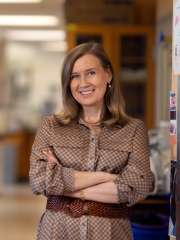
Hanna Mikkola, PhD
Induction of HSC self-renewal program during pluripotent stem cell differentiation (Aug 2018)
The long term goal of this project is to improve the treatment of leukemias and other blood diseases by increasing the availability of hematopoietic stem/progenitor cells (HSCs) for transplantation. To achieve this goal, the team aims to identify molecules that could be used in culture to induce and maintain HSC self-renewal program in human HSCs. As many of these compounds are FDA approved, if such compounds are found, this project could move rapidly to translational stage toward improving the treatment of blood diseases.
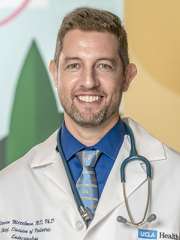
Steven Mittelman, MD, PhD
Adipocyte Release of Nucleosides in the Leukemia Microenvironment (May 2019)
The study will investigate whether fat cell secretion of molecules called nucleosides contribute to Acute lymphoblastic leukemia (ALL) chemotherapy resistance. The goal is to understand why obese pediatric patients with ALL have a 50% higher relapse rate than lean patients.
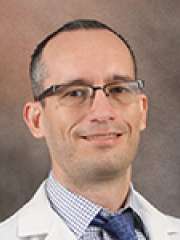
Nicholas Nickols, M.D., Ph.D.
Stereotactic Body Radiotherapy (SBRT) Induced Immunity in Prostate Cancer (Feasibility Trial of Preoperative Adjuvant Steritactic Body Radiotherapy for Patients at High Risk of Local Failure after Prostatectomy) (Sep 2016)
This study will investigate whether SBRT can increase potentially tumor-reactive T cells in malignant prostates, and possibly improve outcomes for men with high risk and even metastatic prostate cancer
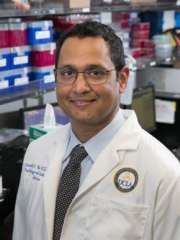
Dinesh Rao, MD, PhD
Assay development for small molecule inhibitors of IGF2BP3 (Oct 2019)
The study will conduct a screen for inhibitors of a protein important for B-acute lymphoblastic leukemia (B-ALL), the most common form of pediatric cancer. These inhibitors may be useful in developing new drugs for this pediatric cancer.
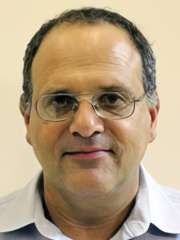
Shimon Weiss, DSc
Towards better tumor margin resection during surgical prostate intervention using fluorescence lifetime contrast (May 2020)
The study will develop a new imaging approach to help surgeons better visualize tumor margins in prostate cancer alongside the critical tissues like nerves. The goal is to improve full remission rates in prostate cancer by helping surgeons detect the whole tumor while also avoiding cutting nerves, a major issue currently in the clinic.